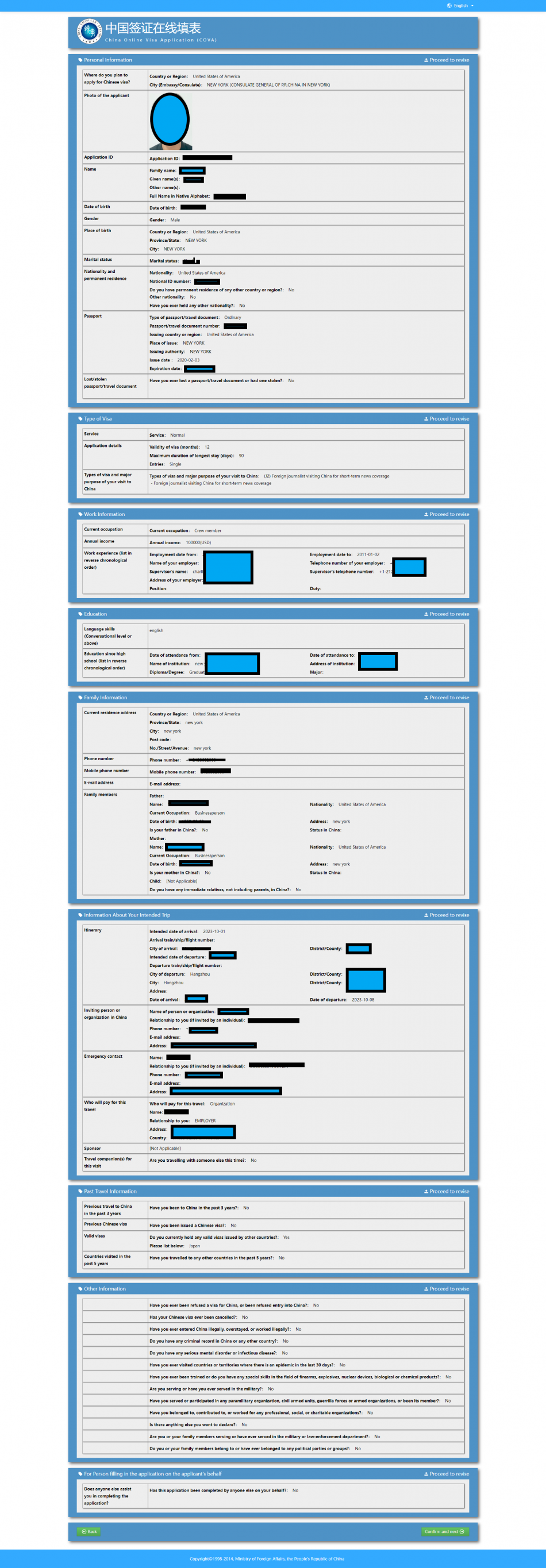If you need to travel to China for filming or working on a media-related project, obtaining a J2Visa/Journalist Visa is essential for legal reasons. The application for the J2 Visa in China can be a challenging process, but we’re here to provide you with the necessary information to make it smoother.
Please be aware that using a travel visa for filming in China is technically illegal. However, if your purpose is related to commercial, corporate, or branded content, a business visa may suffice as it’s for marketing purposes and not political activities.
Updated info in 2025:
Our experience is that projects for documentary production approved directly by the Foreign Affairs Office in China have tightened significantly, especially for foreign media. Approval now heavily depends on the shooting content as well as the specific province and city involved. Even with domestic partner platforms, the process for obtaining a J2 visa takes longer than before. It’s essential to allocate enough time to handle extended application cycles and additional material requirements. Whether or not the project is related to CARFTE or involves a domestic partner platform, the personal background and production experience of J2 visa applicants seem to be under greater scrutiny.
Directly applying for a J2 visa through the embassy’s press office has always required a visa telegram or invitation letter issued by a qualified domestic entity. This means that a domestic qualified unit must take responsibility for reviewing and endorsing the application. For documentary production projects, this process can be particularly strict. Unless it’s for a major national diplomatic event, only invited or primary attending media reporters may be able to apply for J2 visas directly through the embassy’s press office.
It still depends on specific cases. In general, the documentary production approval process in China is more difficult now. Additional procedures and unexpected work may arise, even for things that used to be straightforward. Pay extra attention to this. Furthermore, many locations in China where it was previously easier to film general visuals (GV) now have significantly more complicated procedures. When planning documentary production projects in China, ensure you allocate extra time for longer approval cycles and unforeseen challenges.

Given the recent staff changes at the Chinese consulate due to COVID, it’s advisable to start the China J2 visa application process as early as possible. Typically, the application takes 15 to 30 days, but it can be influenced by political events, if you don’t have a government-supported party in China assisting your filming project, your first step should be to contact your local Chinese consulate.
You can find specific visa information on their official website, and if you have trouble reaching them by phone, try sending an email. If you receive an automatic reply, follow up with another email to ensure they are aware of your need to get in touch.
When communicating with the Chinese consulate, you’ll likely be directed to the News/Public Matter department for filming purposes. This information may not be readily available on the consulate’s website, but email correspondence usually helps.
To apply for the J2 Visa, you’ll need to prepare the following documents:
- Your passport and a copy of it.
- An introduction letter from your company outlining the purpose of your visa application
- A formal application letter on letter-headed paper, including a brief introduction of your company/TV station details about the documentary, planned broadcasting time and platform, crew members, and planned arrival and departure dates.
- Crew information list, including scanned copies of the crew’s passports and an explanation of their roles (e.g., director, presenter, producer, cameraman, soundman, etc.).
- A detailed shooting schedule with specific dates, locations, and activities.
- Contact information for local filming venues or organizations in China.
- A list of the equipment you’ll be bringing from abroad
- An interview outline, if interviews are planned as part of the project
Once you’ve gathered all the necessary documents, proceed with Step 2, which involves submitting your application to the consulate through COVA. It’s an online form that you need to fill in, it takes at least 20-30 minutes, here is a full screenshot of the whole form, take a look so you know what information you might need ahead of you.

Please note that this information is provided as a basic guide, and you may need to seek additional assistance from your local Chinese consulate or relevant authorities for specific questions or circumstances related to your J2 Visa application. Good luck with your visa process and your filming project in China!
While you finding hard to bring equipment to China, we provide full production services, that includes equipment rental, crew hire, location scouting and all types of support.



